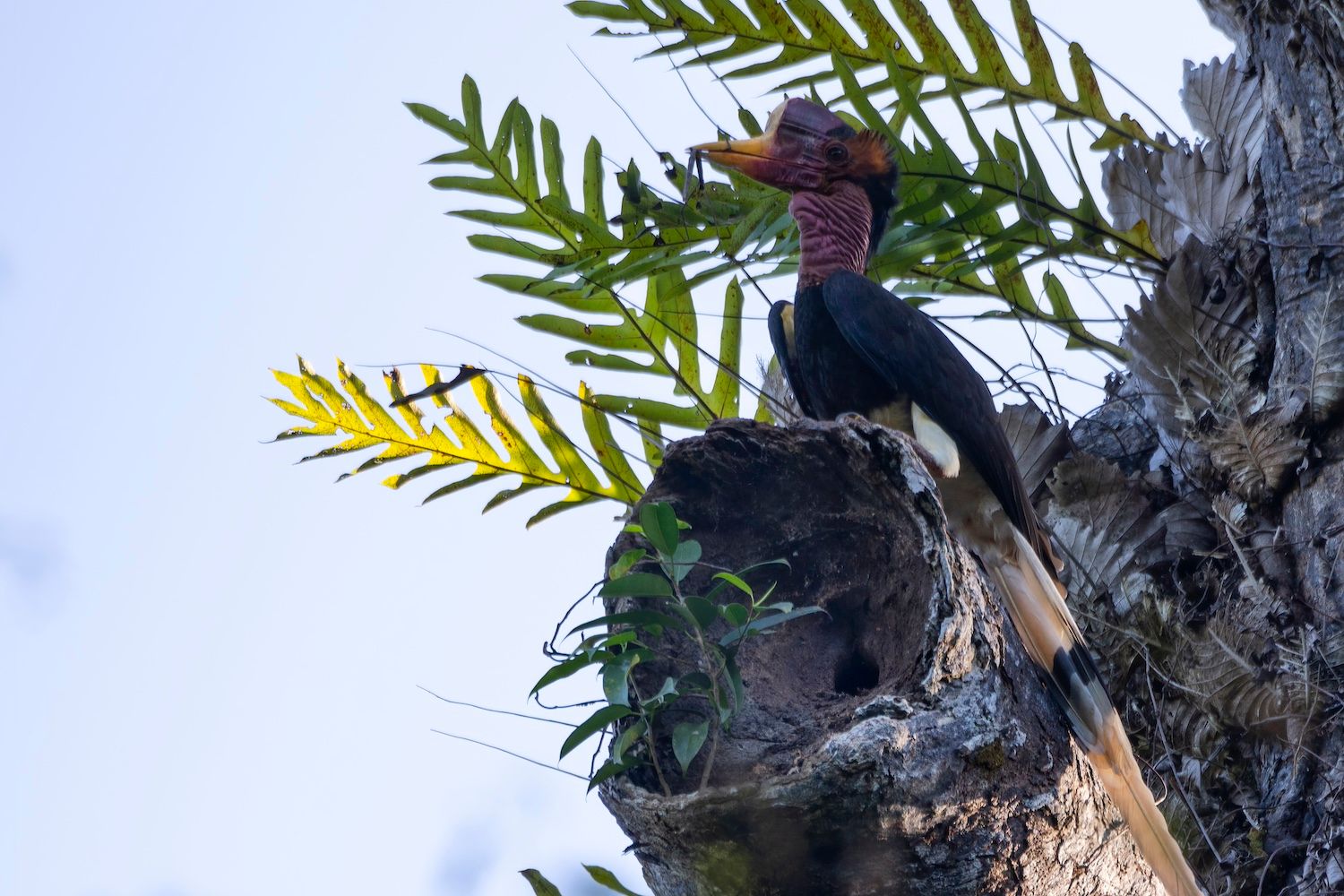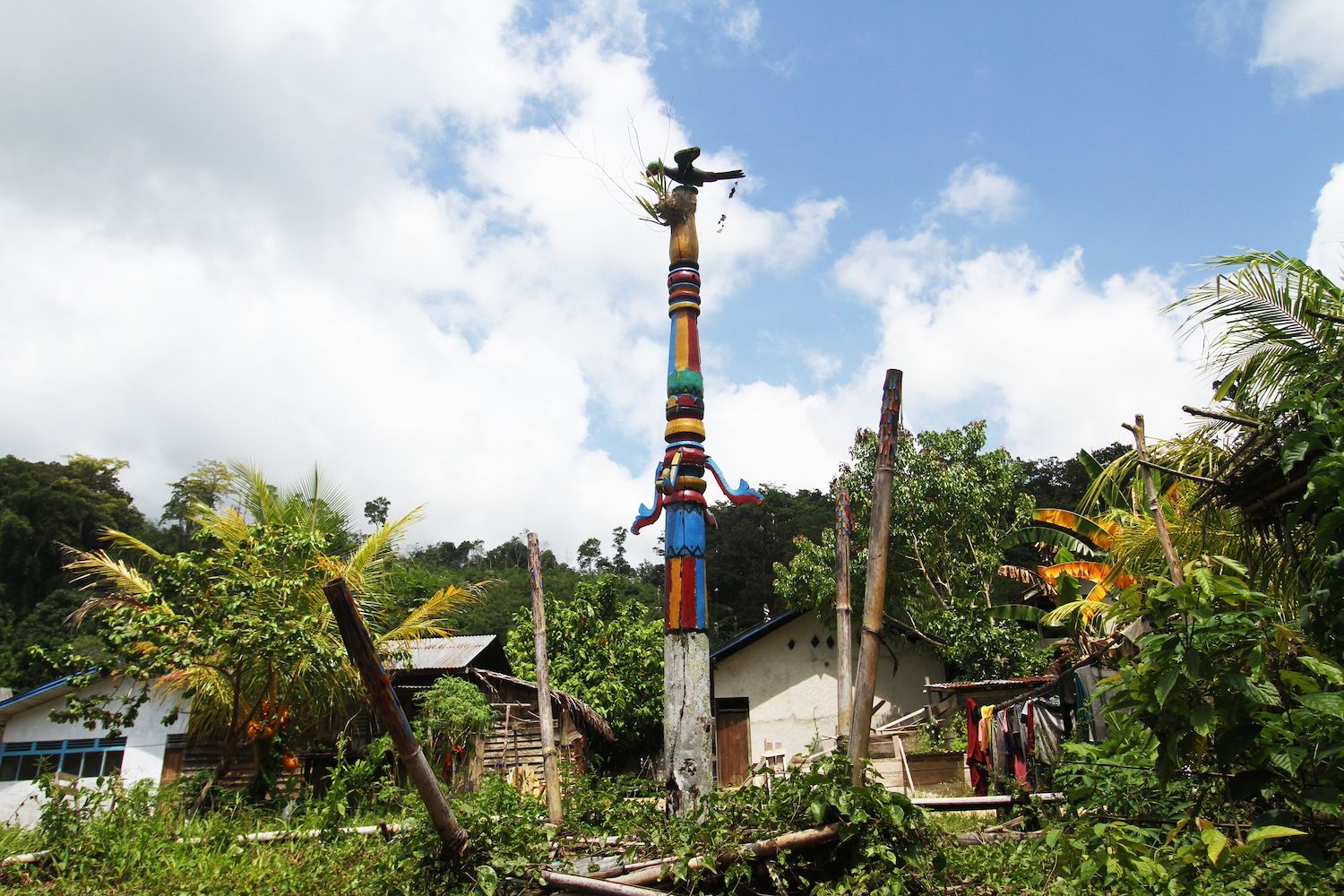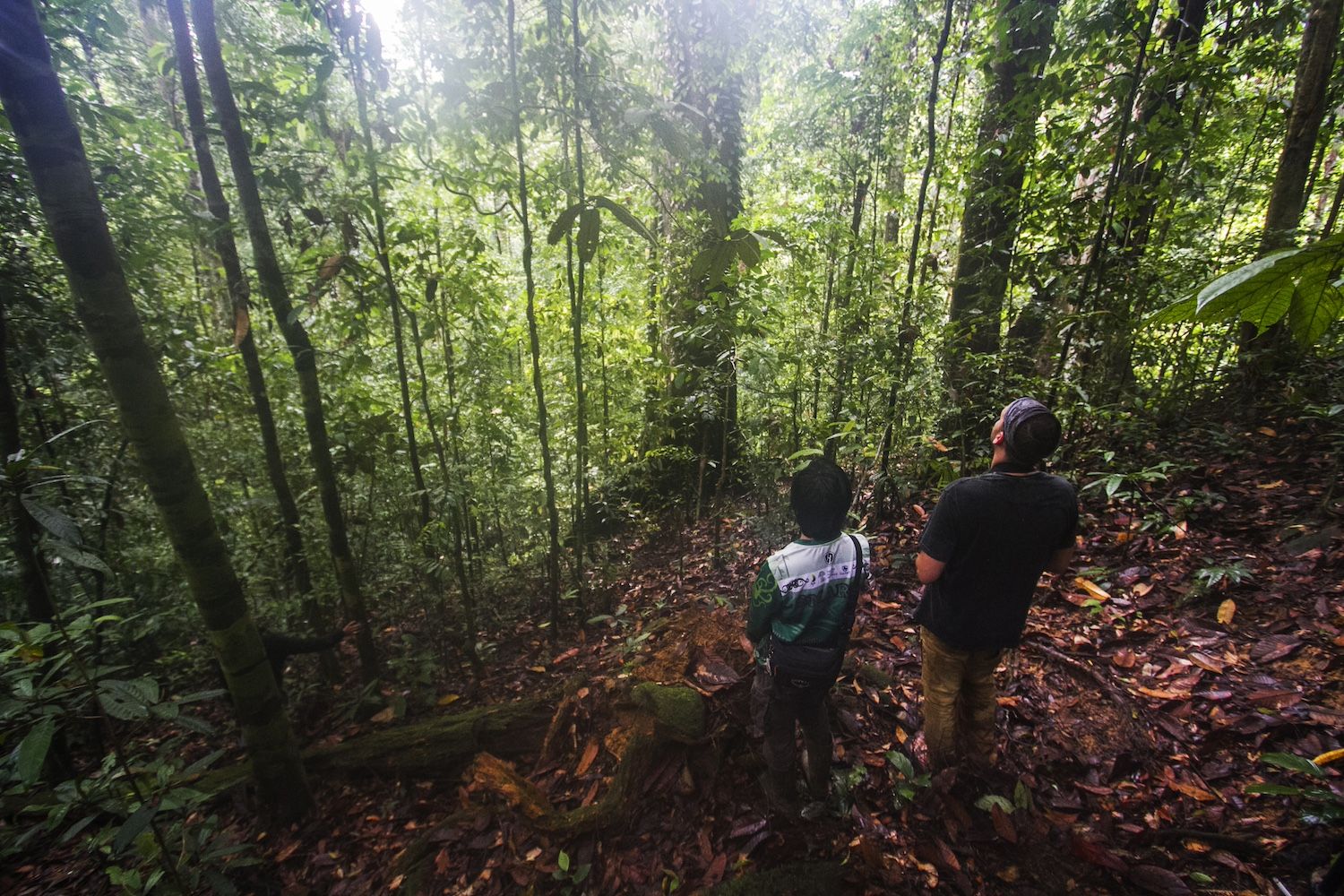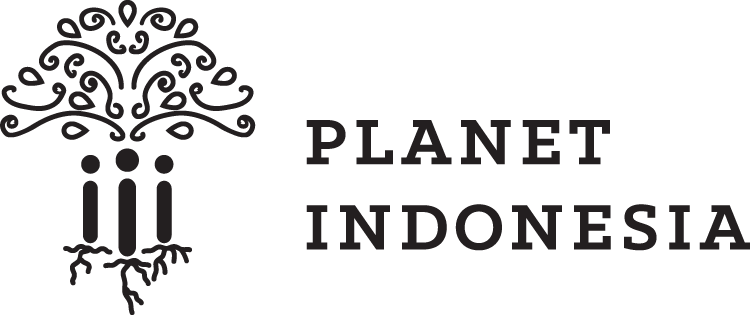The Hornbill – A Keystone Species
Borneo is home to eight different hornbill species, all now under serious threat. These birds are especially targeted for their solid casque – the structure on top of their beak – which can sell for up to five times more than ivory on the black market. In 2013 alone, an estimated 6,000 hornbills were killed in West Kalimantan. Today, the helmeted hornbill (Rhinoplax vigil) is officially listed as critically endangered.
Hornbills are particularly vulnerable during the breeding season. The female seals herself inside a tree cavity for several weeks to lay and incubate her eggs, while the male feeds her through a narrow opening. During this time, both parents are easy to locate and often fall victim to poachers. Although up to three eggs may be laid, usually only one chick survives. As a result, hornbill populations recover very slowly.
Hornbills feed mainly on figs and other fruits. As they travel long distances through the forest canopy, they disperse seeds in their nutrient-rich droppings – even in remote areas – playing a vital role in reforesting the jungle naturally. Without them, a key part of the rainforest’s regeneration cycle would be lost.

The Dayak – Traditional Partners in Conservation
For the Indigenous Dayak people of Borneo, hornbills are far more than just birds. They are powerful cultural and spiritual symbols that represent dignity, peace and community. The Dayak have lived in close connection with the forest for generations.
But their way of life is increasingly under threat. It’s not only Borneo’s wildlife that is struggling to survive as deforestation advances — the Dayak are also witnessing the erosion of their land rights and traditional practices. At the same time, access to stable livelihoods, education, and healthcare is often limited.
With few alternatives, some are forced to turn to poaching or illegal logging. Yet a strong awareness of the forest’s value remains, and many Dayak are eager to play an active role in protecting their home. This is exactly what the project was created to address.

Hornbill Guardians
At the heart of the project are the Hornbill Guardians – members of Dayak communities who are carefully trained by our partner organization, Planet Indonesia. Their mission is to monitor hornbill nests, document bird’s presence and behavior, and report any suspicious activity. Their presence helps detect and prevent poaching early on.
These Guardians bring invaluable local knowledge. They understand the terrain, the forest trails, and the the local community networks. Their training includes the use of GPS devices, smartphone-based data collection, and close cooperation with local authorities. The data they collect contributes to regular reports used for law enforcement and nest protection.
For the Dayak, this engagement provides a meaningful source of income. At the same time, it strengthens the community’s sense of ownership and active involvement in protecting their natural environment. The project not only creates safe habitats for hornbills but also opens new opportunities for the local people.
Through ongoing training, collaborative planning and cooperation with government ranger teams, a strong network for forest protection is being established. This community-based approach is a vital step toward long-term conservation that benefits both people and nature.







